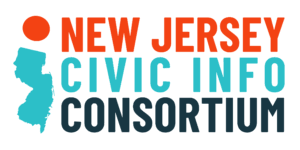Hopewell Township Mayor Courtney Peters Manning shared a statement on the Township’s website addressing questions about the Payment in Lieu of Taxes (PILOT) agreement with Lennar, the developer of the new Hopewell Parc on Scotch Road. The statement explains the Township’s approach to meeting its state-mandated affordable housing requirements and details how the PILOT agreement supports these efforts. The mayor also discusses the potential use of PILOT funds for school improvements, subject to the resolution of ongoing litigation with Pennington and Hopewell Boroughs. Below is the statement:
PILOT and affordable housing in Hopewell Township: the facts
As a part of Hopewell Township’s state-mandated plan to meet its affordable housing obligation, and to ensure that these new neighborhoods are financially feasible, the Township entered into a Payment in Lieu of Taxes agreement with Lennar, the builder of the new inclusionary neighborhood at Hopewell Parc. This allows us to meet our affordable housing obligation while keeping costs down for township taxpayers.
PILOTs are common in New Jersey affordable housing projects; they are used to incentivize developers to build projects that the community needs by offering a small reduction on the property taxes that would otherwise be owed. For example, in the PILOT on the Hopewell Parc neighborhood, over the 30-year term of the agreement, the payments made will equal 93 cents on the dollar of what conventional taxes would have been.
These agreements are necessary because Hopewell Township is required by state law to provide its “fair share” of affordable housing, which in the last round of requirements was 653 affordable units. To do this without putting the cost of the building on taxpayers (which would be $150-$200 million), the township works with home builders, who subsidize the affordable units by also building market-rate units. Thus, the statement that “those new neighborhoods are not affordable” is inaccurate and misleading.
While some of the development will be sold at whatever the current market will support, each development also contains a minimum of 20% regulated affordable homes. The cost to residents of these affordable units is controlled by state law, and there are long waiting lists for families to be able to move into one.
Hopewell Township also has the added challenge of extremely high infrastructure costs, as many areas of the township are served by wells and septic systems. Neighborhoods with an affordable housing component, on the other hand, must be on public water and sewer systems. It is the developer’s responsibility to bring this infrastructure to the neighborhood by negotiating with neighboring towns, and doing so is very expensive and usually results in litigation.
At the Hopewell Parc development, for example, the cost to bring water and sewer was more than $27 million. In fact, there was a builder interested in the project before Lennar, but they pulled out for financial reasons. Thus, a PILOT agreement was a critical part of the negotiations with Lennar to incentivize them to work with the township on bringing our state-mandated affordable housing plan to fruition.
Residents have raised questions about how the PILOT may impact the Hopewell Valley Regional School District, especially in light of the HVRSD referendum that will be in front of voters this month. The HVRSD and the Board of Education have noted that their bond Referendum contemplates improvements at all schools in the district, including roof and HVAC maintenance that have nothing to do with growth.
It also includes replacement of the trailers at Bear Tavern Elementary, which have been housing students since 1994, with the construction of a new wing. This new construction will allow for expanded pre-K programs, in addition to accommodating additional students from our new inclusionary neighborhoods. The estimated cost of construction of the new Bear Tavern wing is $17.1 million, which represents approximately 19.6% of the total amount of the referendum.
The Hopewell Township Committee noted in 2016, and has reinforced over the years, that it is committed to using a significant portion of the funds from the PILOT to offset costs of improvements at Bear Tavern Elementary School that may, at least in part, stem from any additional students that will come from our court-approved affordable housing plan. In fact, the PILOT agreement with Lennar itself specifically mentions using PILOT funds to support the HVRSD and the new Senior and Community Center.
The roadblock in putting specific numbers to this commitment is the current pending litigation initiated by Hopewell Borough and Pennington Borough against Hopewell Township that seeks to invalidate the PILOT agreement. The township has already won the case in the lower court, but the case is currently on appeal. If the referendum passes, and the appeal is decided in Hopewell Township’s favor, the township can have substantive conversations with the HVRSD about a specific dollar amount for a contribution towards improvements at Bear Tavern.
Finally, outside of the referendum, it is important to note that the HVRSD sets their annual operating budget and the amount to be raised by taxes each year. The tax collector raises these funds from taxpayers, both residential and commercial, and sends them to the HVRSD. The PILOT has no impact on this process, and the district receives 100% of the amount requested every year, no matter what.
The Hopewell Township Committee, the HVRSD, and the Board of Education collectively have a productive working relationship, including our recent partnership on a joint demographic study. The study showed that the HVRSD has seen an enrollment decrease of over 7% during the past 10 years, and current enrollment is more than 500 students below the peak enrollment during the 2006-07 school year.
Further, in looking at the demographic study’s “medium projections” for growth, the HVRSD would see growth of 431 students through the 2032-33 school year, which is still below 2006-07 enrollment. Moreover, the study shows that 40% of the coming 10-year growth comes from typical, organic factors like births and home sales.
This means that only about 250 new students will be from new neighborhoods associated with the Township’s affordable housing mandate.
Affordable housing and how it is funded is a hugely complicated issue in New Jersey. The short story is that the Hopewell Township Committee is committed to working with the HVRSD. The township will contribute PILOT funds to the district as we continue to implement our court-approved plan to meet our state-mandated affordable housing obligation and welcome our new neighbors to the township.








